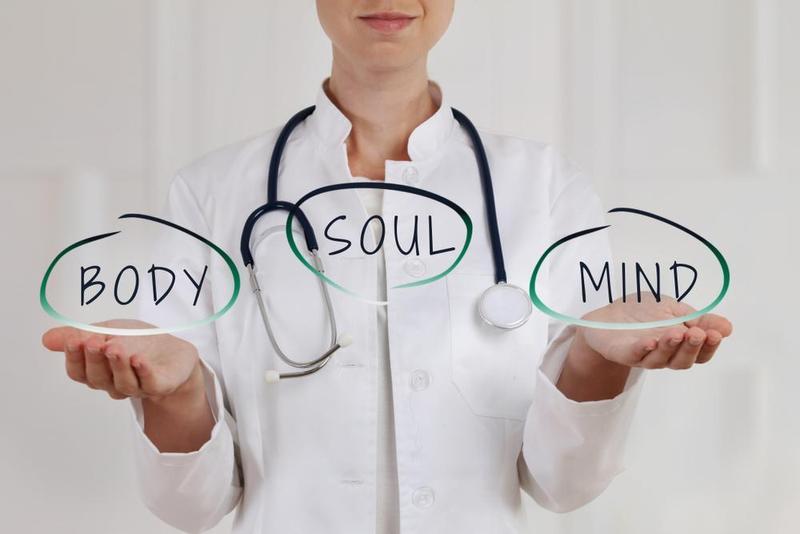Holistic Therapies and Practices for Anxiety and Depression
Holistic Therapies and Practices for Anxiety and Depression
Latest research has found that around half of the people who suffer from anxiety and depression use some type of holistic therapy to assist with their symptoms.
Part of the reason people might be attracted to integrative care for depression or anxiety is the holistic perspective found in most integrative approaches. This perspective takes into account the complex nature of depressive and anxiety disorders and the numerous reasons why people experience them.
Mind-body practices
Mind-body practices are strategies you can use to enhance the mind’s positive impact on the body—and vice versa. Examples sometimes used in the treatment of depression and anxiety include:
- Relaxation training
- Hypnosis
- Imagery
These practices have been an essential part of traditional healing approaches for millennia (e.g. Ayurvedic, Traditional Chinese Medicine, Tibetan Medicine). In addition, hypnosis is used by conventional psychotherapists, dentists, and other health professionals.
Mindfulness and yoga
Studies on yoga, stress reduction, and relaxation therapy show positive results for anxiety and depression. There is an especially large body of research demonstrating that the practice of mindfulness can have a large impact on mood.
Mindfulness meditation has been shown to improve symptoms of anxiety and depression after only eight weeks. Mindful movement practices, such as yoga, tai chi, and qigong, may also bring relief. Given that it costs little to learn these practices and there is little risk, they are worth pursuing. In addition to evidence of effectiveness, these practices can give a sense of control over at least one aspect of life.
Nutritional supplements
The uniqueness of each person’s biochemical processes is only just starting to be appreciated. The evolving field of Functional Medicine attempts to take into account both the genetic information and the unique differences that occur in each person’s metabolism, including their extra need for certain nutrients. Current recommendations, as follows, come from a generalized understanding of human brain chemistry, without these individual considerations. Note: The best source of nutrients for the body-mind is from nutrition-dense organic foods.
Basic nutritional supplementation
The following is often recommended daily for people who suffer from mood disorders:
✔ Multiple Vitamin with B6 and minerals
✔ Omega-3 fatty acids EPA/DHA totaling 1,000-3000 mg daily
✔ Vitamin D-3 (Dosage dependent on the vitamin D blood level and season of the year, with higher dosage in the winter months)
✔ Probiotics with two or more live cultures
Essential oils (aromatherapy)
Essential oils (aromatherapy) are safe and can be effective for anxiety and depression. Individual preferences of scent may guide self-care. The essential oils of lavender, chamomile, basil, Frankincense, are generally found to have a calming effect (for those with anxiety), while bergamot and peppermint oil are stimulating and can help those with depression.
Nature-based therapies
Spending time in nature can reduce anxiety and depression and increase pleasant feelings. Looking at a scene of natural beauty, people describe their feelings with words like calm, beauty, happiness, hope, and aliveness. Being connected to nature not only makes people feel better emotionally, it reduces blood pressure, heart rate, muscle tension, and the production of stress hormones—all signals of stress and fear.
So when you are fighting anxiety or feeling down, find a park or greenspace and go for a walk or go outside and work in your garden.
Animal-assisted and pet therapies
Pets may play a big role as a therapeutic intervention for people with anxiety and depression. Equine (horse) Assisted therapists have also been very useful for people with anxiety and depression.
Music therapy
Music therapy involves actively listening to or performing music to promote health and healing. More and larger studies are needed before recommendations are clear, but given the low cost and risks, this may be a useful approach for those individuals who have interest in this area.
Experts recommend listening to music regularly, either daily or weekly, to start to see a reduction in depressive symptoms.
Traditional Chinese Medicine
Traditional Chinese Medicine practitioners work with an individual to optimize their nutrition, activity, and internal energetic balance, using herbs, acupuncture, movement practices (qi gong and tai chi), massage (Tui Na), and other techniques. Acupuncture for mild to moderate depression has been found to be promising in early research, although larger reviews have not come to a consensus about whether or not it is effective in relieving anxiety and depression.
Naturopathic medicine
Naturopathy includes diet, exercise, natural botanicals and supplements, mind/body practice, hydrotherapy, and other tools. For those preferring natural approaches, treatment with a naturopath can be partnered with psychotherapy of some kind.
Be the first to post a message!
